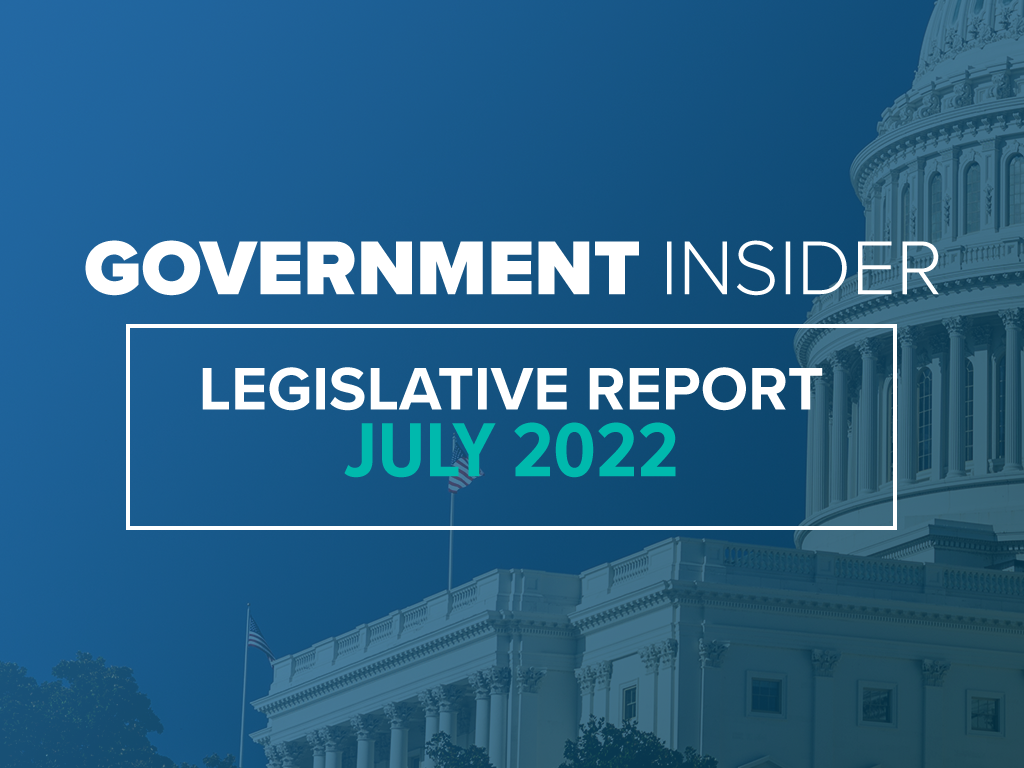Legislative Report July 2022

Here are highlights of legislative activity that could impact the electronic security and life safety industry from July.
Federal Legislative Report – July 2022
The centerpiece legislation passed by Congress in July may have future impact on emerging technology employed by the electronic security industry. H.R. 4346 was filed as a Supreme Court security funding bill but was used as a vehicle for the Senate to pass “The CHIPS Act of 2022”. While the widely touted provisions in this bill relate to semiconductor research and development, it is a massive piece of legislation that provides funding in workforce development, labor provisions and many research programs. It authorizes about $52 billion to boost the development of semiconductors, as well as funds for research and 5G wireless technology. The bill also provides funding for National Institute of Standards and Testing (NIST), which will update testing for biometric and facial recognition software. In virtually all programs with funding that involve research & development, manufacturing, and other costs involving the use of labor – prevailing wage and other labor requirements will be included. But not all provisions wanted by labor unions were kept in the Senate version that were included in the House-passed version.
While microchip production is universally important, updating biometric and facial recognition software standards through NIST will be an important program to monitor. A number of states are attempting to prohibit or severely restrict the use of facial recognition technology by law enforcement, schools, and other governmental purposes. Some statutes or ordinances even propose outright bans on any use of facial recognition technology. Most of these restrictions stemmed from a faulty narrative that developed from the 2019 NIST study on facial recognition software submitted by vendors. Most of the faulted software tested that became the source of anti-facial recognition legislation was software that was still in development and not commercially available. It is hoped that future testing will be more concise and delineate developmental stages of such software.
A positive bill impacting fire and life safety passed the House in July. H.R. 7981 requires each unit of federally assisted housing to contain hardwired or tamper-resistant battery-powered smoke alarms. The bill also requires the Department of Housing and Urban Development to complete a national campaign to educate the general public about health and safety requirements and how to properly use safety features in housing.
Another bill that could provide greater flexibility on work schedules for employees was introduced in the House in July. H.R. 8442 would allow employers and employees to enter into mutually agreed flexible work schedules that would preempt other wage and hour statutes, which limit the number of hours per week an employee may work and rates of pay.
Access the Members-Only Federal Legislative Report
State Legislative Report – July 2022
We have some bills that could provide vertical market opportunities for members with a footprint in these states.
California SB 1384 would require a licensed firearm dealer to have a digital video surveillance system, burglary alarm system, and keyless entry system on their business premises. This bill passed the Senate in May and was just ordered to third reading in the House on August 4th.
Massachusetts has several bills that were introduced or moved in July that appropriate $35 million for court system-wide replacement of physical security hardware, including, but not be limited to, video surveillance systems, duress systems, security scanning systems and inter-personnel communications equipment. The controlling bill appears to be H. 5046, which had the third and final reading on July 21, 2022.
Pennsylvania SB 129 would require each building in which a childcare facility is in operation and uses a fossil-fuel-burning heater or appliance, fireplace or an attached garage, must have an operational, centrally located and approved carbon monoxide alarm installed in the vicinity of the fossil-fuel-burning heater or fireplace and in every unit that is located on the same story as the fossil-fuel-burning heater or appliance within 18 months of the effective date.
Another bill will have a potential impact on employer administration of paid family and medical leave in Massachusetts. H. 5118 contains a provision that would allow employees to use accrued vacation and sick leave to make up the difference in pay provided by the paid family and medical leave insurance program, which is about 64% of the employees’ full-time pay. The Governor vetoed this portion (and numerous other provisions) of the bill because of the administrative burden it would place on employers who must create individualized matrix for each employee to calculate the amount of vacation and/or sick leave to use. On July 29th, the House rejected the Governor’s amendment (veto).




